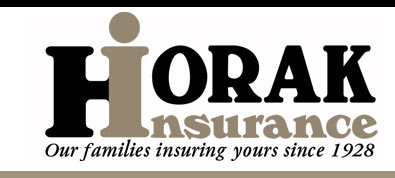Personal Umbrella Insurance
Let us handle all your personal umbrella insurance needs!
| Washington | 319-653-2116 |
| Columbus Junction | 319-728-2414 |
| Sigourney | 641-622-2851 |

What is Umbrella Insurance?
There are two types of umbrella insurance — commercial and personal — and both are considered supplementary to primary, or underlying, policies. Umbrella policies provide critical additional coverage that is often overlooked.
A commercial umbrella is designed to protect your business from liability risks related to its operation. It is purchased to add coverage to standard business policies.


A personal umbrella is designed to protect your personal assets from liability claims, particularly in scenarios where you may be held liable for damages. A personal umbrella is often purchased as a supplement to homeowners, auto or renters insurance, because it can cover amounts above the limits (maximum reimbursement) on those standard policies. In the case of a lawsuit filed against you, umbrella insurance can pay for both legal fees and damages you are found responsible for up to your policy limit.
Umbrella insurance can also fill in certain gaps in coverage.
Whether you need personal or commercial umbrella coverage, your local Trusted Choice® Independent Insurance Agent can analyze your complete liability picture — including the inherent geographical risks you face — and recommend an individualized insurance plan for you. Use the Trusted Choice independent agent matching tool to find a trustworthy, professional financial partner.

Learn more in our FAQ:
Or click here to learn more offline.
What Does Umbrella Insurance Cover?
An umbrella policy is different from other primary forms of insurance because it does not cover your own property. Rather, it protects you financially from claims of damage to others’ property; it also protects you financially if you are found legally responsible for a bodily injury to another person.
For example, if you’re at fault in an auto accident, or a neighbor is injured in your home, a liability claim against you could exhaust the limits (maximum reimbursement) provided by your underlying policy. That policy would usually be your homeowners, auto, renters or condo insurance, whichever is applicable. This is when you can turn to your umbrella policy for additional coverage or what’s called “excess liability coverage.” Without this additional coverage, you must pay any amount due beyond your underlying policy limits yourself.
Your umbrella policy also can cover your legal fees in the lawsuit and pay for a settlement if you are sued for libel, slander, or defamation.
Your umbrella policy can cover other members living in your household, too. Ask your Trusted Choice agent for information.
So, Umbrella Insurance Covers Lawsuits?
Yes. Umbrella insurance’s primary purpose is to protect you from liability claims. Umbrella insurance will cover you in both instances of claims that do not result in legal action and claims that go all the way to lawsuits. If you are sued, an umbrella policy will cover your legal fees in addition to settlements you are required to pay, up to your policy’s limit.
For many people, protecting their assets from potential lawsuits is the main reason they purchase umbrella insurance.
What if I Don't Have Umbrella Insurance?
If a claim is brought against you and you do not have sufficient coverage from your underlying policies, anything you own can be seized to cover costs — that can include your house, your car, your investments, your retirement accounts, and your checking and saving accounts. Your future income can also be considered as an asset, causing your wages to be garnished.
A simple, unforeseen accident could potentially devastate you financially or affect your wages for years. Purchasing an umbrella insurance policy is a relatively inexpensive way to help protect yourself from falling into such financial difficulties.
How Does Umbrella Insurance Work?
Usually, you won’t turn to your umbrella policy unless a claim has been made against you, the policyholder, by someone who believes you have wronged them in some way. First your underlying policy — most likely your homeowners, renters, condo or auto insurance — will pay out its maximum reimbursement, then your umbrella insurance coverage will kick in. The umbrella insurance company will pay the remaining settlement amount up to the limits of your umbrella coverage. Once you have exhausted both your underlying policy and your umbrella limits, you are responsible for any remaining amount due yourself.
An umbrella insurance policy may also cover certain claims that are excluded from a primary policy. If the case brought against you is one that your umbrella insurance covers but your primary insurance does not, you will first have to pay a deductible on your umbrella insurance, known as “self-insured retention,” and then your umbrella policy will pay out.
How Much Does Umbrella Insurance Cost?
The cost of coverage — or premium — for an umbrella policy typically starts at around $150 to $300 annually for a $1 million policy. Your annual premium will increase if you decide to purchase more coverage — but it’s often possible to double the amount of your coverage and increase the policy limit to $2 million with only a 50% increase in your premium.
Your insurance company may require you to purchase specific minimum coverage limits on your underlying (homeowners or auto) policies before you can add an umbrella policy. Your overall insurance costs may go up — but so will your financial protection. Uncertain? A discussion with your Trusted Choice agent can set your mind at ease.
How Much Umbrella Insurance Should I Carry?
You should consider three main factors when choosing your umbrella policy limit:
- The risks you may be liable for. Consider potential hazards in your home or apartment, whether you commute by car and how often, and any risky activities or hobbies you engage in (such as hunting or hazardous sports).
- The value of your assets. The greater the value of your assets — including your future income, property, vehicles, personal possessions, stocks, bonds, savings and retirement funds — the greater your umbrella policy limit should be.
- The potential loss of future income. Weigh your future wages against the possibility of a lawsuit. Remember that if a lawsuit is brought against you, both your current assets and your future income can be seized to pay the liability claim.
Even if you don’t own much now or even are still at university, consider your future earning potential. If you’re on track to pursue a high-paying career, you may also have high student debt. A lawsuit could target that future income and negate the large investment you’ve made in a bright future. The higher your potential income, the greater the amount of umbrella insurance you should consider.
Protect your finances today and tomorrow. It’s as easy as a conversation with your Trusted Choice Independent Insurance Agent.
Where Can I Get Umbrella Insurance?
Many different insurance companies sell umbrella policies. It can be as easy as clicking “yes” online. But if you want the benefit of a trained insurance expert who can analyze your unique needs, call your local Trusted Choice agent.
And because Trusted Choice agents are independent — meaning they are free to sell you policies from many companies, not just one company — your agent can comparison shop for you to find the most appropriate coverages for your needs at competitive prices to fit your budget.
Is Umbrella Insurance Tax Deductible
If your umbrella policy is part of your personal insurance, it is not tax deductible. However, if you own rental properties covered under a personal umbrella policy, or if you are a business owner and you have purchased umbrella insurance to cover your business, these policies would be considered part of business expenses and the premiums could be found partially or wholly tax deductible. If you have questions, consult your tax accountant.
Does Umbrella Insurance Cover Property Damage?
Umbrella insurance does not cover your own property. It will cover most property damage that you or a member of your household may be found liable for.
Your policy will exclude “malicious intent” — meaning that if it can be proven that you purposefully damaged someone’s property, your umbrella policy will not pay.
I'm a Renter, Not an Owner. Do I Need Umbrella Insurance?
An umbrella policy is a good idea for anyone who owns a car, even if they don’t own their residence. Umbrella insurance can protect you from claims that exceed your auto insurance liability limits. Remember too, that as a renter, you still can be found liable for injury to someone who has an accident in your apartment or for damage to another person’s property. Umbrella insurance can protect you in other ways as well. Ask your Trusted Choice agent for information.
Does Umbrella Insurance Cover Dog Bites?
Umbrella insurance will cover dog bites in most circumstances. If your dog bites someone, whether on or off your property, you are legally responsible for the victim’s bodily injury. If their injury is severe, the medical bills could cost you a great deal of money. While dog bites are often covered under the liability coverage included in your homeowners policy, umbrella insurance will provide extra coverage. If you own a breed that is classified as being particularly aggressive, such as a pit bull, some insurers may exclude dog bites from your homeowners coverage. In this case, umbrella insurance is a must to ensure you are covered from liability for dog bites.
Does Umbrella Insurance Cover Floods?
Umbrella insurance protects others from bodily injury and property damage you are held liable for. It does not cover damage to your own property. The only scenarios in which umbrella insurance would pay for flooding is if it is flood damage that you could be responsible for, such as plumbing that overflows in your apartment and leaks through to your neighbor’s apartment, damaging their furniture.
If you need flood insurance, you must purchase it as a separate policy through the National Flood Insurance Program (NFIP). Your Trusted Choice agent will understand the risks of the area where you live and can help you assess your flood risks as well as assist in the purchase of flood insurance.
Does Umbrella Insurance Cover Uninsured Motorists?
Most umbrella policies do not cover damage from uninsured motorists. Since an umbrella policy’s purpose is to protect you from liability for bodily injury or property damage you cause, damages you may face from an uninsured or underinsured driver would typically not be covered under your policy. If an umbrella policy does offer uninsured motorist coverage, you may have to pay more on your premium.
Does Umbrella Insurance Cover Car Rentals?
Usually, unless it is excluded from the policy, most umbrella insurance will cover car rentals in a variety of ways. Umbrella insurance can also potentially cover you if you borrow someone else’s car or drive a company vehicle. An umbrella policy can cover you if you rent a vehicle domestically and the damage you cause is excluded by your primary policy. It can also cover you for auto liability if you rent a car abroad, outside of your regular auto insurance policy’s coverage area.
Umbrella insurance policies that cover rental cars will also cover diminished value — that is, damage to a rental or borrowed vehicle that would not be covered under collision coverage only. It can also cover you in cases of contractual liability or contractual damages for car rentals — meaning liability or damages to the vehicle that you may not necessarily have caused but are contractually responsible for.
Should Landlords Have Umbrella Insurance?
Umbrella insurance is a great idea for landlords. If you own rental properties, you have both a large number of assets and a large number of potential liability risks. Purchasing a personal umbrella policy can protect you from liability in many situations, such as if one of your tenants or a guest becomes injured on your property. As a landlord, you may wish to carry a greater policy limit on your umbrella insurance than the average homeowner.
Does Umbrella Insurance Cover Professional Liability?
Umbrella insurance can help protect your business. Commercial umbrella insurance functions like personal umbrella insurance, but covers liability issues specifically related to your business. It supplements your existing business liability policies, such as an errors and omissions (E&O) policy that covers mistakes you may make as a professional offering services through your business. If you are faced with a lawsuit related to your business or profession, your primary applicable business liability policies will pay out first. Once those policies have reached their limit, the umbrella policy will cover costs up to its limit.
Does Umbrella Insurance CoverMalpractice?
Purchasing an appropriate business umbrella policy will cover you from potential malpractice lawsuits. Like other forms of umbrella insurance, it will supplement the underlying malpractice liability policy you already carry as a professional. It is important to ensure that your umbrella insurance coverage amount starts at the limit of your underlying insurance, or you may be personally responsible for paying the difference between policies.
While anyone can benefit from umbrella insurance, those with high levels of personal net worth, many assets, and significant future earning potential should especially consider umbrella insurance. For a small amount every year, you can rest easy knowing that you have high levels of coverage in case the worst happens. You can easily find a policy that will fit your exact needs by consulting with your local Trusted Choice agent. Trusted Choice can match you with an agent who can customize your coverage to suit your life and the risks you face. Just click FIND AN AGENT to get the expert help you need.
Click here for a comprehensive document containing the information above.
The information on this page has been sourced from Trusted Choice

